2017 Special: A year in images
From a political and economic standpoint, U.S: President Donald Trump’s inauguration early in the year, and the negotiations between the European Union and the United Kingdom over Brexit, were the highlights of a year also marked by a spate of elections in the heart of Europe: the UK, France and Germany. Here are some of the milestones of 2017:
-
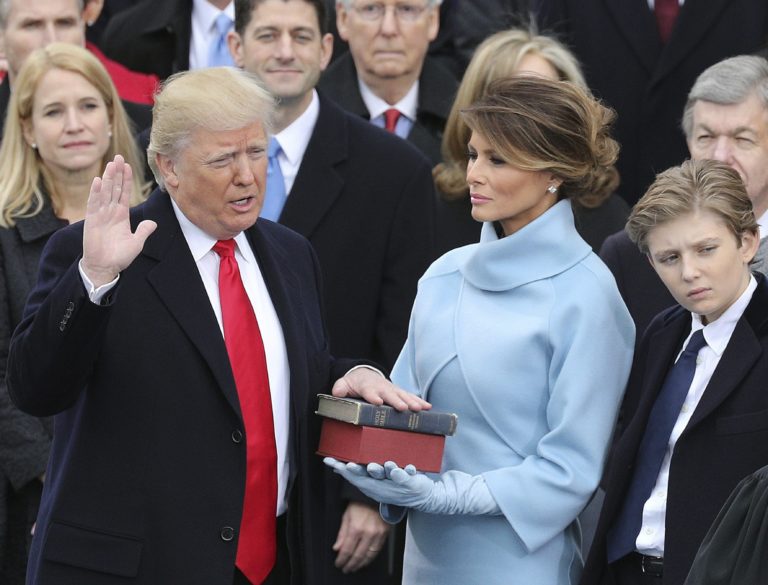 1
1JANUARY
On January 20, 2017, Donald Trump was sworn into office and began his term as the 45th president of the United States.
-
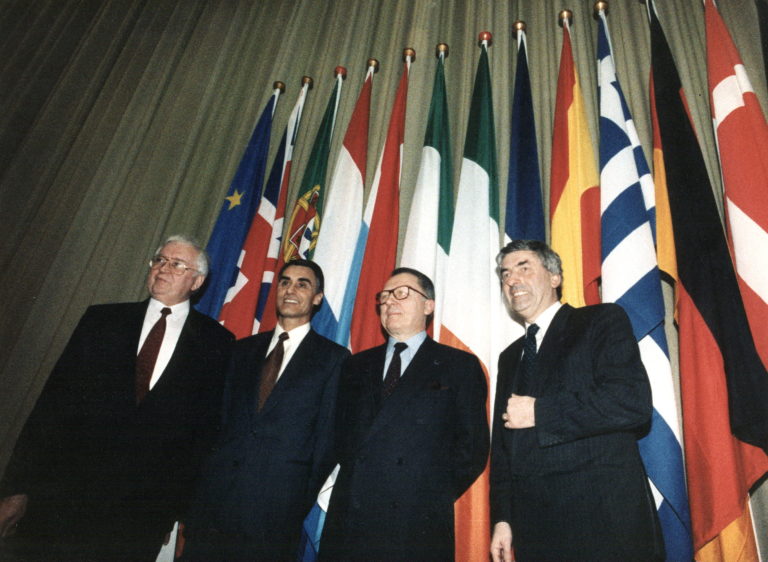 2
2FEBRUARY
The Treaty on European Union, also called the Maastricht Treaty, turned 25. The text, which gave shape to the European Union as we know it today, was born with the purpose of building a “new stage in the process of creating an ever closer union among the peoples of Europe.” This treaty laid the foundations of the economic and monetary union, the step prior to the creation of the euro and of EU citizenship. Germany, Belgium, Denmark, Spain, France, Greece, Ireland, Italy, Luxembourg, the Netherlands, Portugal and the United Kingdom were the twelve signatory countries, although the number of member states has continued to rise.
-
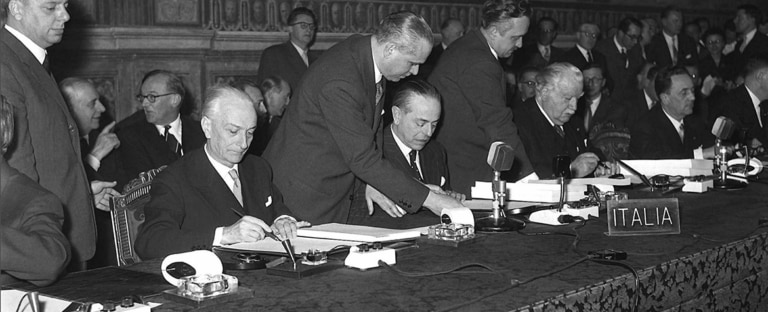 3
3MARCH
It marked the 60th anniversary of the signing of the Treaty of Rome by the leaders of Belgium, France, the Federal Republic of Germany and the Netherlands. The treaty established the European Economic Community, removing trade barriers and allowing the free movement of goods, services, capitals and people among member states - in essence, laying the foundations of the European Union.
-
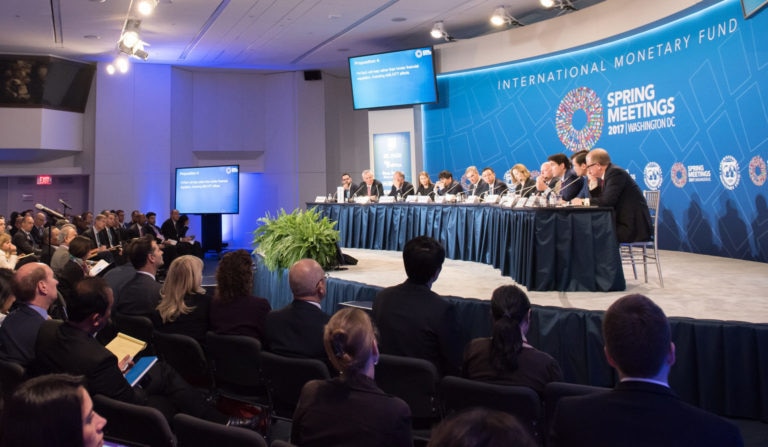 4
4APRIL
The seminar entitled ‘Fintech and the Transformation of Financial Services’, organized by the International Monetary Fund, was held in Mexico. BBVA was the only representative of the banking sector on the IMF’s fintech committee. The session analyzed how emerging technologies in the financial sector can alter the nature and of financial services, and the impact of these changes on financial stability and regulation.
-
 5
5MAY
the G20’s business community – the ‘Business 20' or B20 – gathered in Berlin to debate how to achieve a sustainable world economy in the future. At the end of the summit, the B20 provided German Chancellor Angela Merkel with its 20 recommendations for the leaders of the G20. The recommendations focused on three key fields of action: 1) Promoting a resilient economy that is capable of adapting to change, 2) Curtailing climate change and fostering the transition towards cleaner sources of energy and 3) Building more responsible economies and companies, by promoting open, dynamic, and inclusive labor markets that harness technological change.
-
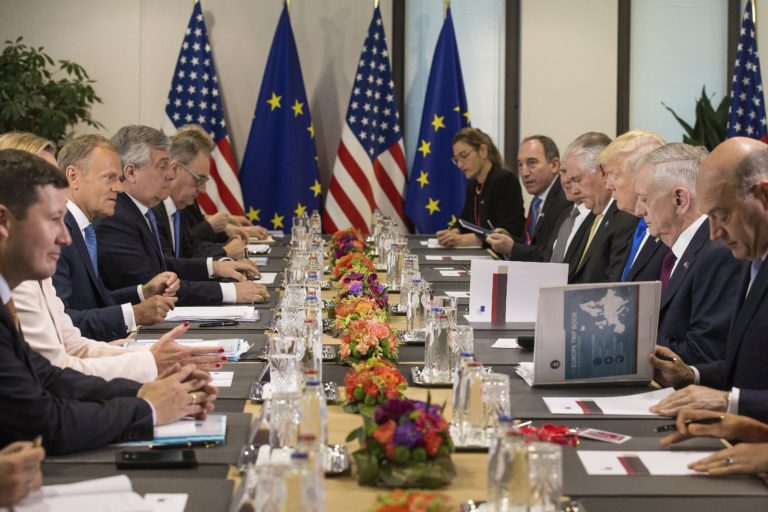 6
6MAY
The EU and the Trump Administration met for the first time on the occasion of the U.S. president’s trip to Belgium to attend the North Atlantic Treaty Organization (NATO) summit. Beyond its original purpose, this meeting was also expected to offer an opportunity for both blocks to promote their common economic interests on both sides of the Atlantic, in an environment marked by Brexit and by China’s emergence as a global economic and political powerhouse.
-
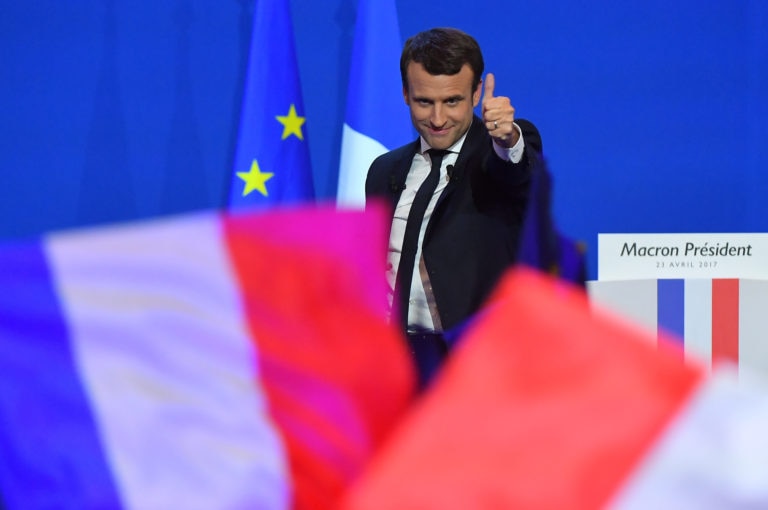 7
7MAY
All eyes turned to France as the country’s presidential elections drew near. Socially liberal candidate Emmanuel Macron, 39, became the France’s youngest president after his 66.10% to 33.90% victory over right-wing leader Marine Le Pen, in a second-round run-off election.
-
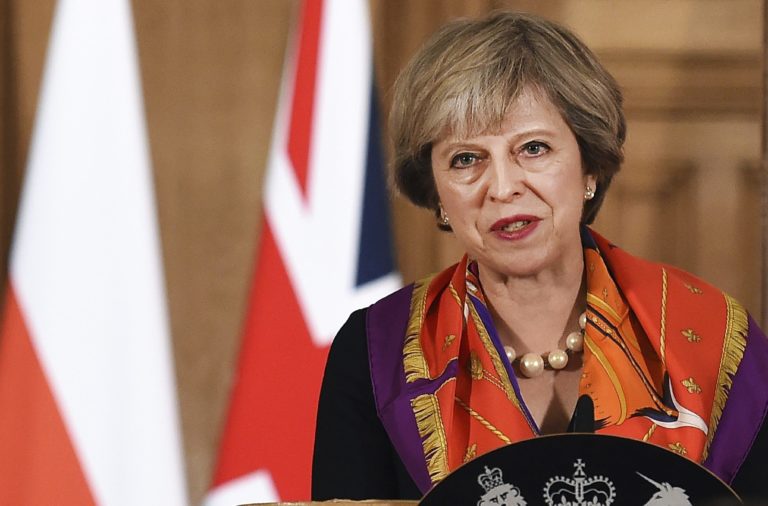 8
8JUNE
The U.K. held its general elections. The conservative party, led by Theresa May, lost its overall majority and barely managed to secure a two-point lead over the Labour party, which won 29 seats.
-
 9
9JULY
The G20 held its summit at Hamburg, Germany. Despite the “together we can go farther “ message that the summit organizer’s strived to convey, the meeting seemed to lack a bit in the cordiality department. Most of the friction spawned from the U.S.’ stance on climate change. However, agreements were reached on open markets, international trade and stability of the financial system.
-
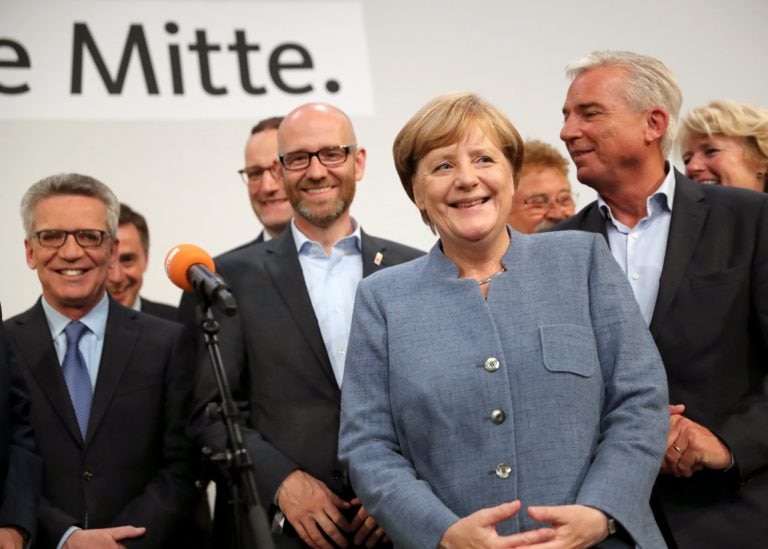 10
10SEPTEMBER
German Chancellor Angela Merkel won a fourth consecutive term, although with worse than expected results, leading to an unprecedented situation: Merkel has still not been able to form a new government and the prospect of new elections has not been ruled out.
-
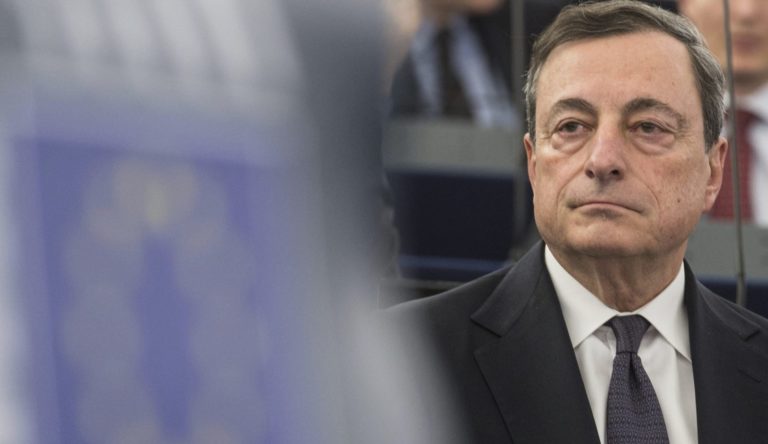 11
11OCTOBER
The European Central Bank (ECB) took the first step towards normalizing its monetary policy, although it adopted a flexible strategy contingent upon the evolution of economic conditions: The main novelty was the slowdown of its monthly bond-buying program, which in January will be cut in half, from €60 billion to €30 billion per month. However, the ECB also announced the extension of the program through September 2018 at least, and vowed not to raise interest rates until “well after” the end of bond-buying.
-
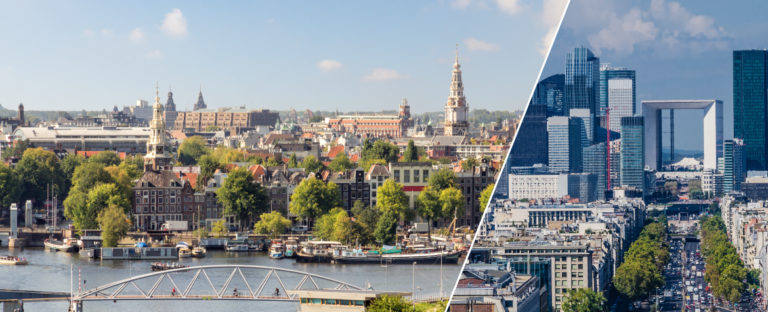 12
12NOVEMBER
EU countries chose Paris as the new seat for the European Banking Authority. Three rounds of votes failed to produce a clear winner and resulted in a tie between Paris and Dublin. The winner was chosen by lot. In its proposal, Paris underscored some of its strengths compared to other candidate cities: Its location at the heart of Europe makes it easier to reach from other EU capitals, and everything the city has to offer to employees, including transport and educational facilities. Also, the French capital is already home to two other EU agencies: the Security and Markets Authority and the European Union Institute for Security Studies.
-
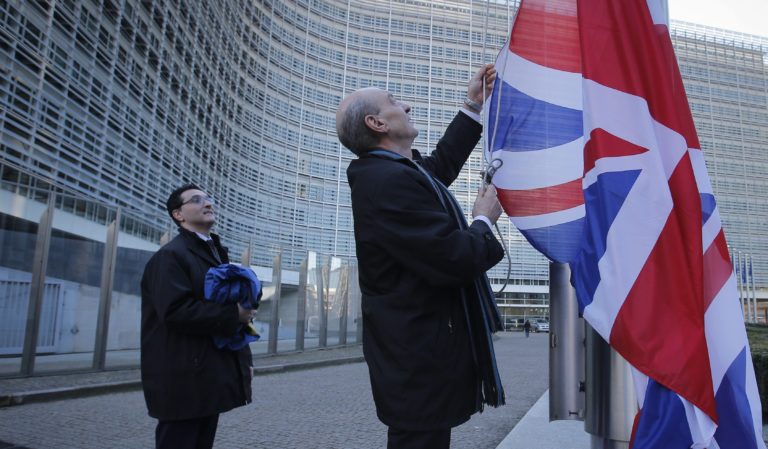 13
13NOVEMBER
The British government announced that the planned date to effectively leave the European Union had been set at 00:00 hours on March 30, 2019; or 23:00 hours GMT of March 29, 2019.
-
 14
14DECEMBER
Trump puts an end to two decades of U.S. foreign policy by recognizing Jerusalem as the capital of Israel. The decision opens a new scenario in the agonizing peace process between Israel and Palestine.